“Widely believed to be the model for the setting of Miyazaki Hayao’s Oscar-winning anime Sen to Chihiro no Kamikakushi (Spirited Away), Meguro Gajoen offers a lavish, magnificent and hyperkitsch interior.
“… In 1931, founder Hosokawa Rikizo built Gajoen to offer a casual but museum-like setting wherein visitors could enjoy food and a bath, transplanting to Meguro the iki aesthetics culture [‘chic’, an aesthetical concept thought to have originated amongst the merchant classes of Edo] long considered peculiar to Asakusa.”
– Cinema Anime, edited by Steven T. Brown, 2008
“Opened in 1931 and known as the Showa Era’s ‘Palace of the Dragon God,’ Meguro Gajoen [elegant garden] was the first wedding complex to be built in Japan. Housing the famous Hyakudan Kaidan (100 steps staircase), it is a Registered Tangible Cultural Asset. Accolades include a three-pavilion rating in the 2009 and 2010 Michelin Hotel Guide, with the elaborately re-designed (in 2006) hotel and restaurants open all year round to host Japanese, Western and other style weddings.
“The founder, Hosokawa Rikizo, first began his business as a high-class Japanese restaurant. Then, Hosokawa added an annex which contained banquet rooms, guest rooms, a shrine, a church, costume salon, beauty salon, and photo studio in order to create Japan’s first ‘All-In-One’ banquet and wedding hall.
“When the original Gajoen was established in 1931, Tokyo was recovering from a devastating earthquake. Houses were cramped and barely equipped with electricity and running water, and the average person probably led a wretched life. In addition, home decorations available to the common people were limited.
“The old Gajoen might have been called a fairyland of sorts, a ‘department store’ of ornamentation, or a Showa-era version of the fairy tale ‘Palace of the Sea God’, which brought each visitor’s dreams and fancies together in one place.
“Among the extravagant interiors preserved from the original site are the ‘Hyakudan kaidan’, the ‘100-Step Staircase’. There are, in reality, only 99 steps – hyaku dan can also mean ‘the end’ whereas a homonphone of ’99’ can also mean ‘forever’.
“Meguro Gajoen survived the ravages of the Pacific War relatively unscathed. But, in 1988, sections of the old Gajoen had to be torn down due to improvements being made to the nearby Meguro river.”
“Meguro Gajoen is one of the biggest [wedding halls] in Tokyo, and as a study in anthropology you can hardly beat it. ‘Wedding hall’ does not do justice to its many storeys of chapels, banquet halls, expensive restaurants and hotel rooms.
“The impossibly long corridor connecting them is lined with friezes of geisha and samurai and often festooned with flowers, while floor-to-ceiling windows look out upon a drop-dead hillside garden.”
– Tokyo, by Andrew Bender, Wendy Yanagihara
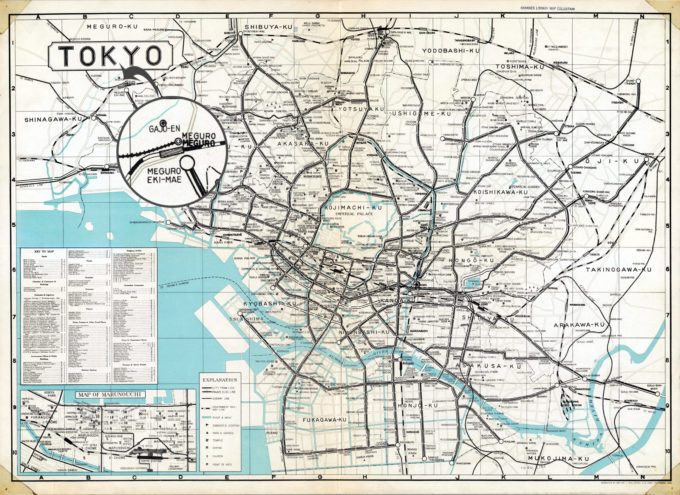
Map: Location of Meguro Gajoen, ca. 1945. [Base map source: U.S. Army Corps of Engineers/David Rumsey Collection]
Meguro Gajoen gardens, c. 1940
- A view of the Shikishima Garden, Meguro Gajoen, c. 1940.
- The largest toro [“stone lantern”, left] in the garden, Meguro Gajoen, c. 1940.
- The First Garden, Meguro Gajoen, c. 1940.
- The Second Garden, Meguro Gajoen, c. 1940.
- “One part of the garden”, Meguro Gajoen, c. 1940.
- “One part of the garden”, Meguro Gajoen, c. 1940.
- Waterfowl in the garden, Meguro Gajoen, c. 1940.
- “View of the Great Bridge from the Wolf Crossing”, Meguro Gajoen, c. 1940.
Meguro Gajoen interiors, c. 1940
- The genkan [entryway], Meguro Gajoen, c. 1940.
- “Buddha’s appearance” 1st floor corridor (Building 2), Meguro Gajoen, c. 1940.
- The four-tiered parlor entrance, Meguro Gajoen, c. 1940.
- Tatami banquet room, Meguro Gajoen, c. 1940.
- “Gentleness Hall”, Meguro Gajoen, c. 1940.
- Wedding Hall waiting room, Meguro Gajoen, c. 1940.
- “Nanpuso”, a Western-style room with gorgeous brush paintings by Nanagi Kenzan, Meguro Gajoen, c. 1940.
- Western-style banquet room, with crane wall paintings by Sakaguchi Isso Hakata, Meguro Gajoen, c. 1940.
- The Gyosho Room, Meguro Gajoen, c. 1940, with carvings throughout.
- “Room of Unzen”, Meguro Gajoen, c. 1940.
- “Part of the hand-washing area”, Meguro Gajoen, c. 1940.
- “Room where the sacred cow sits” (a reproduction of an imperial palace room), Meguro Gajoen, c. 1940.
- Qing Dynasty Room, Meguro Gajoen, c. 1940.
- “Gate of the Water Figure”, Meguro Gajoen, c. 1940.


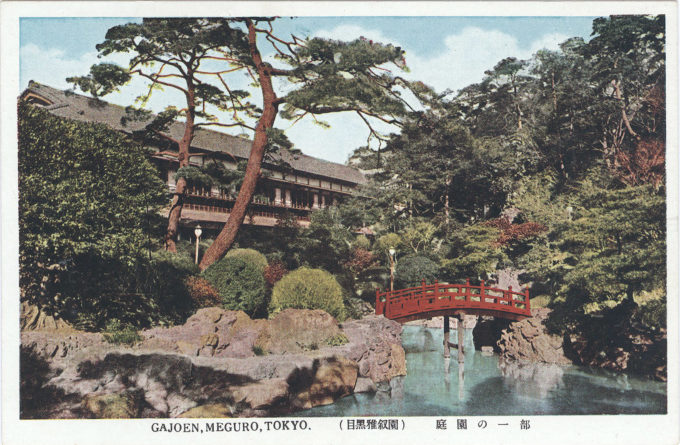
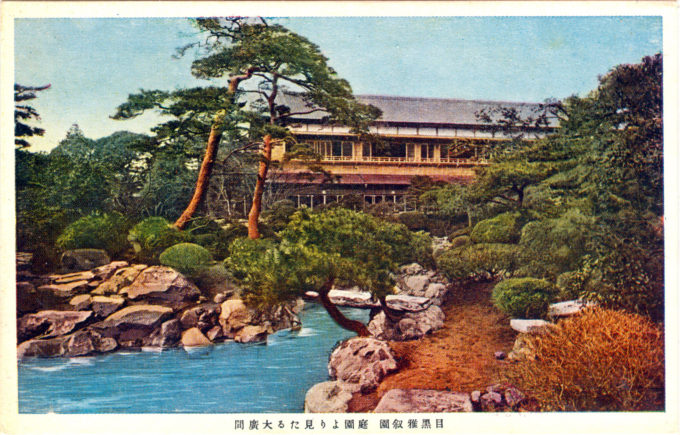
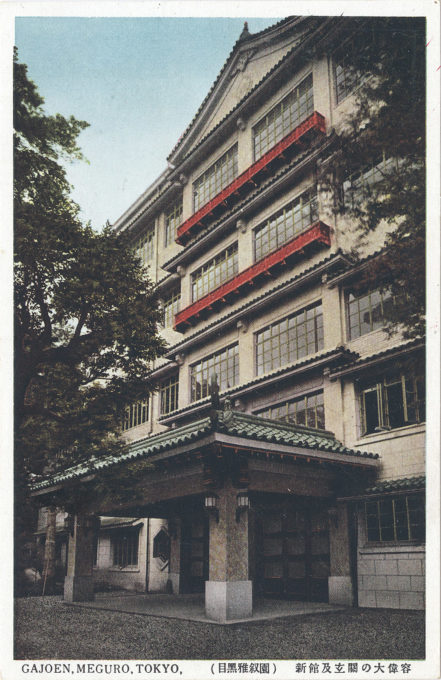
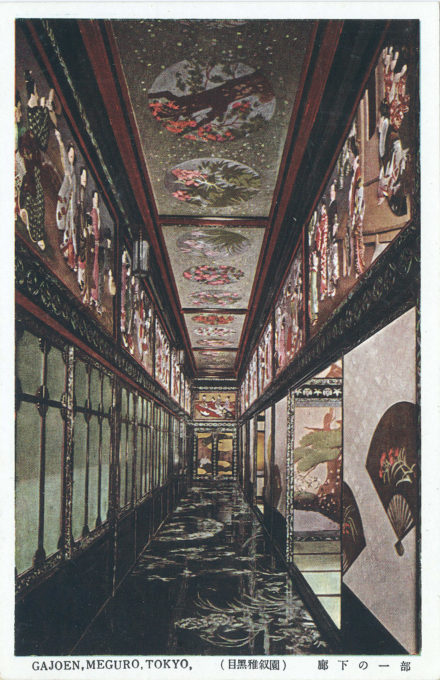
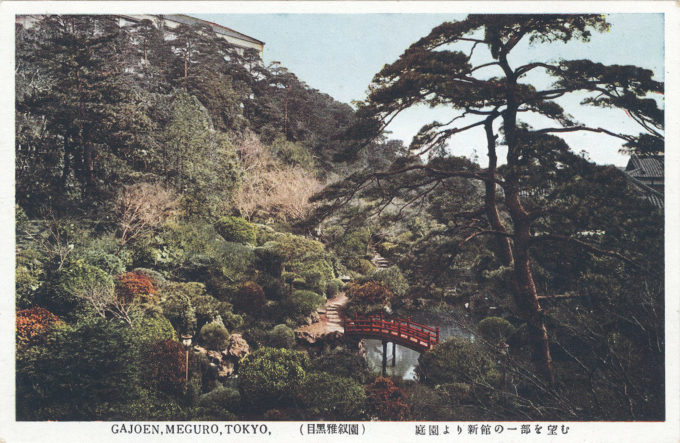

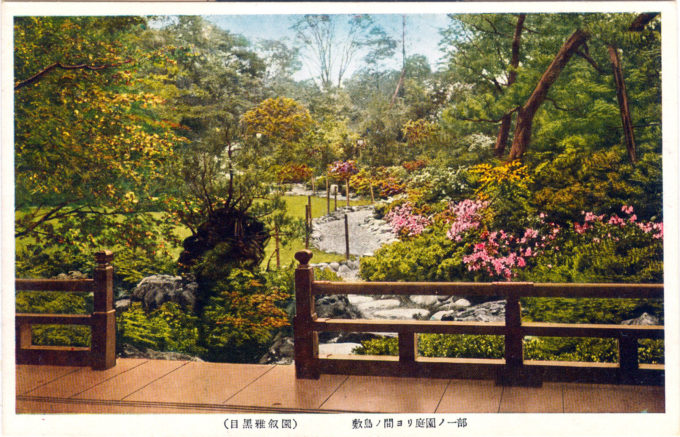
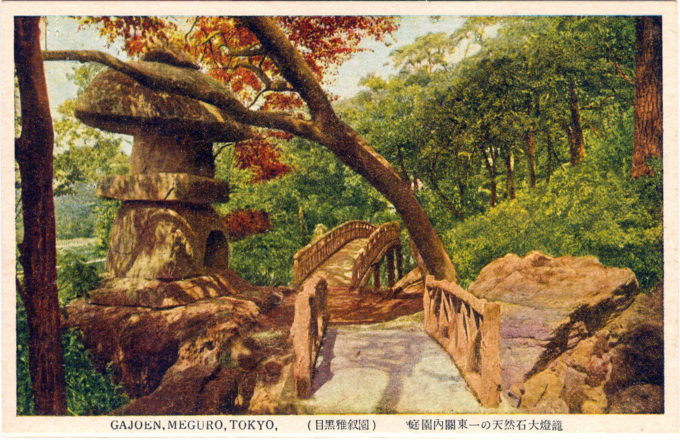
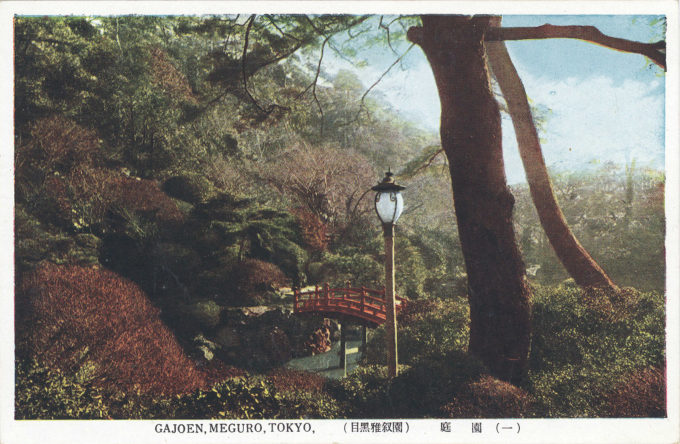
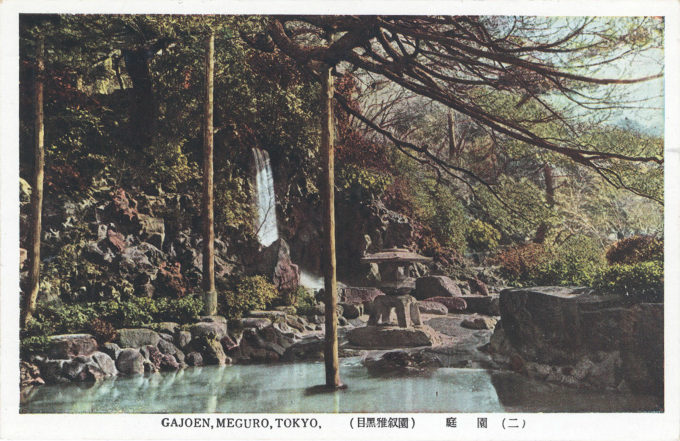
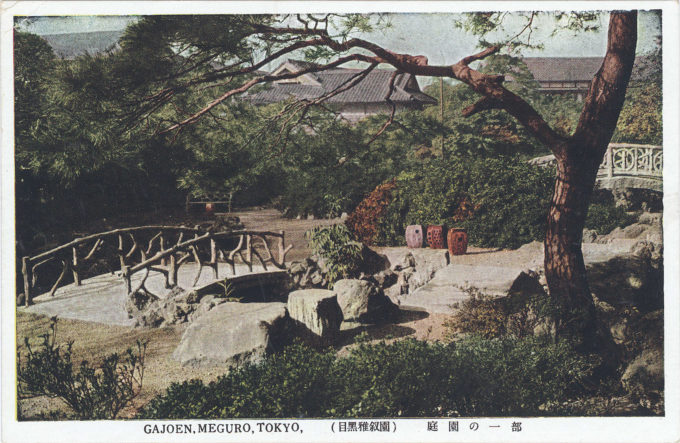
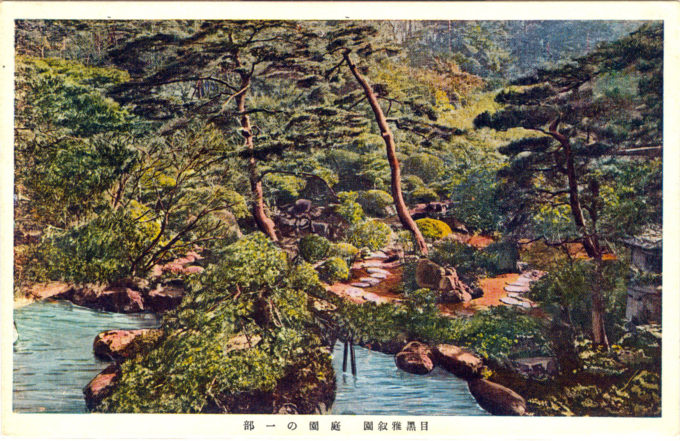
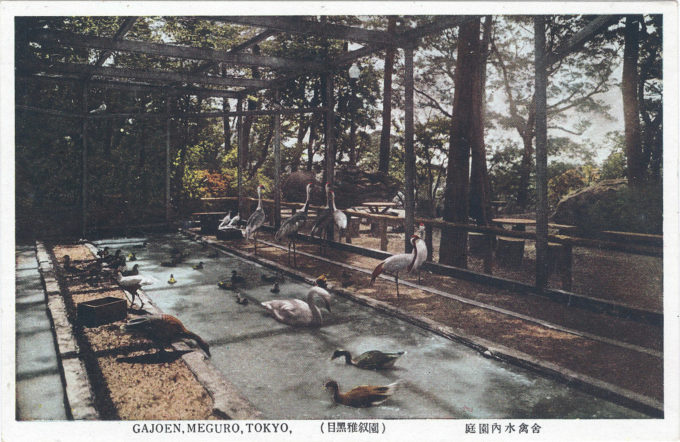
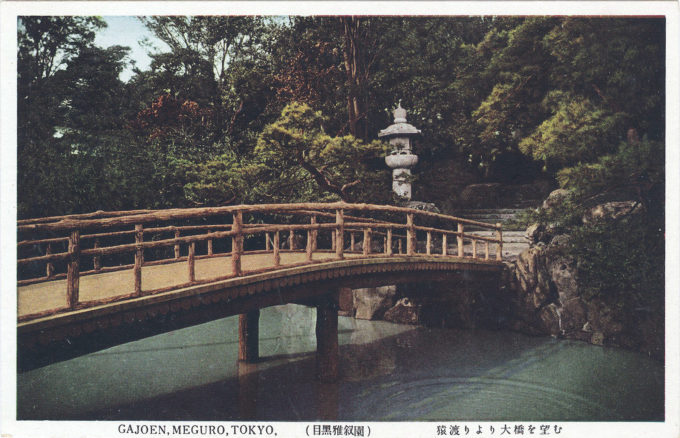
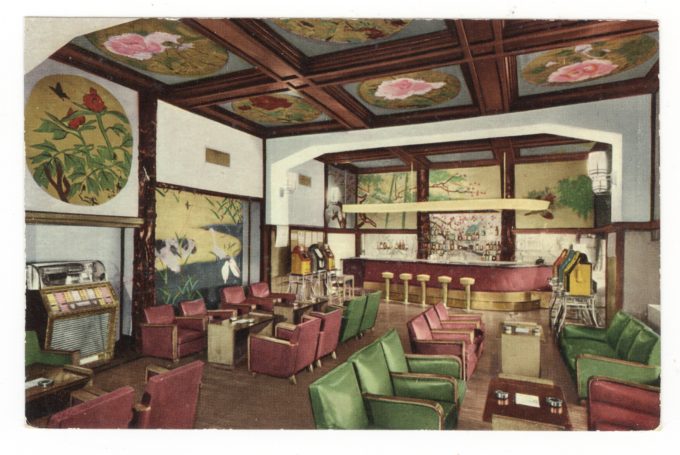
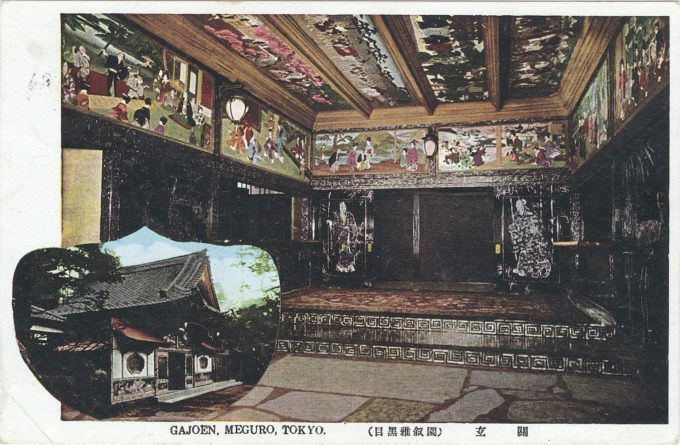
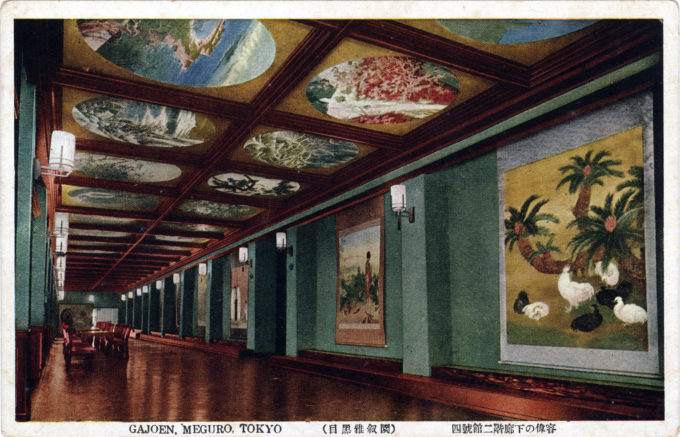
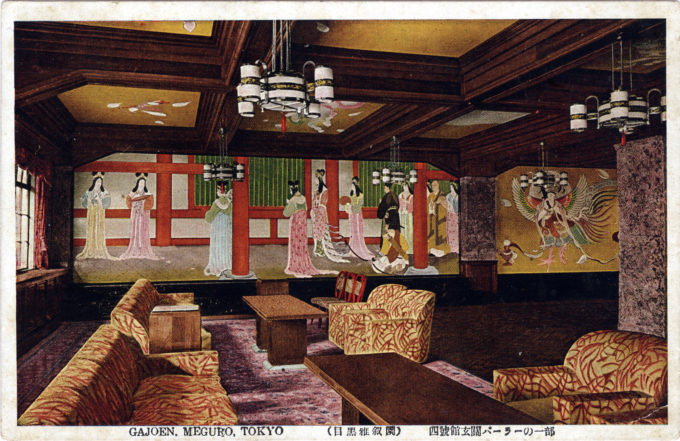

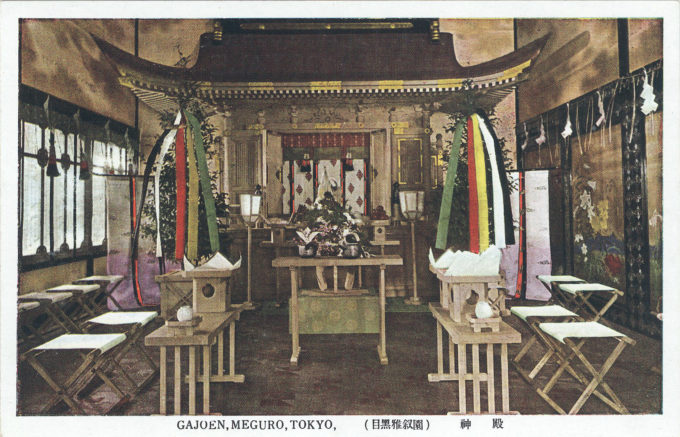
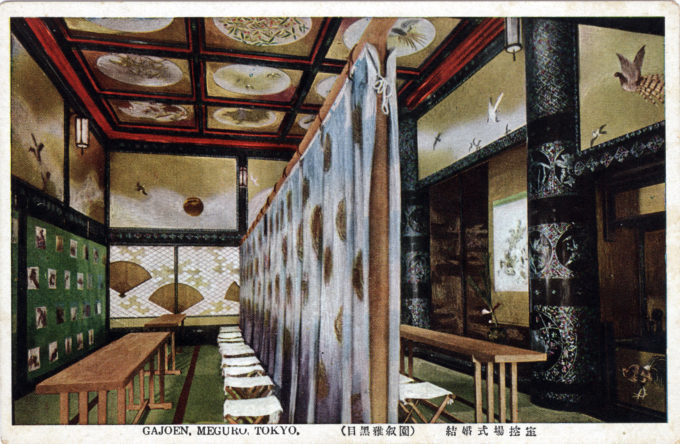
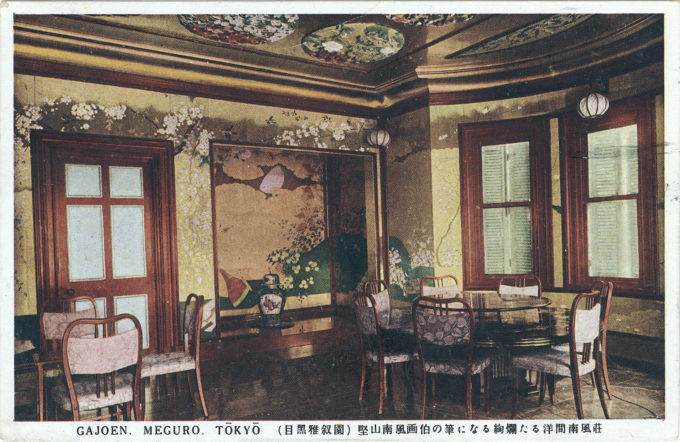
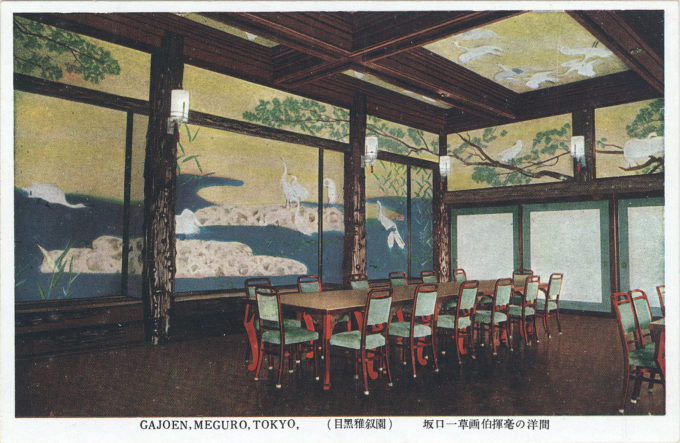
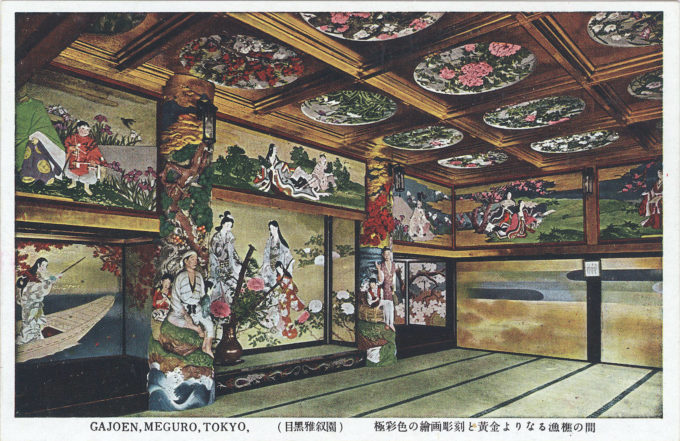
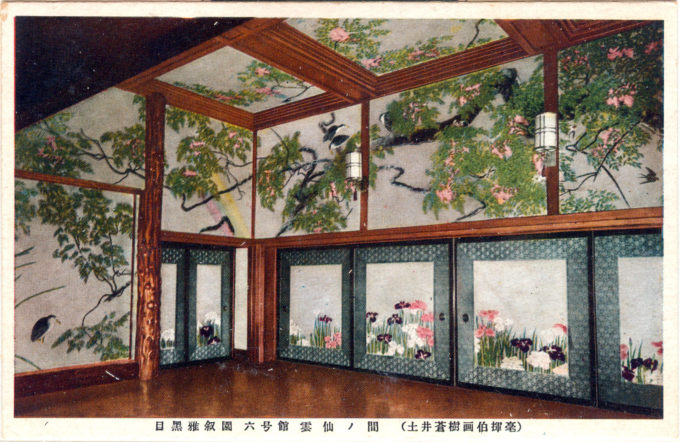
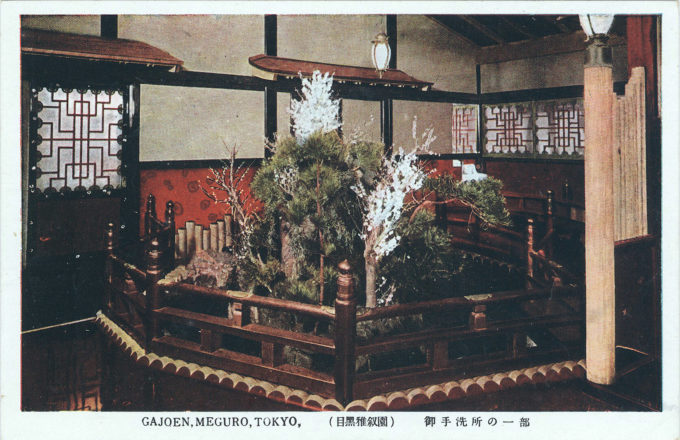
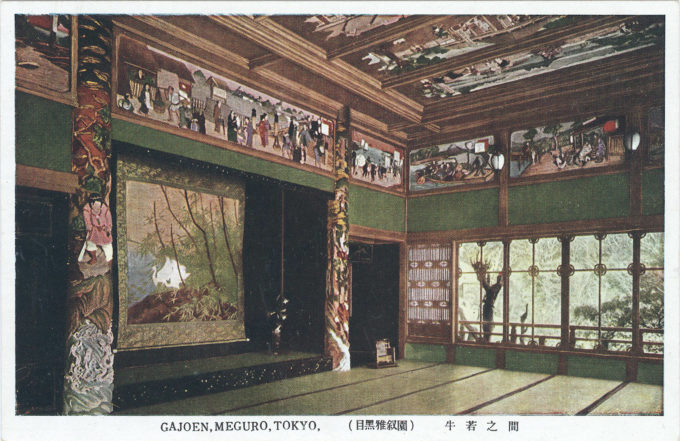
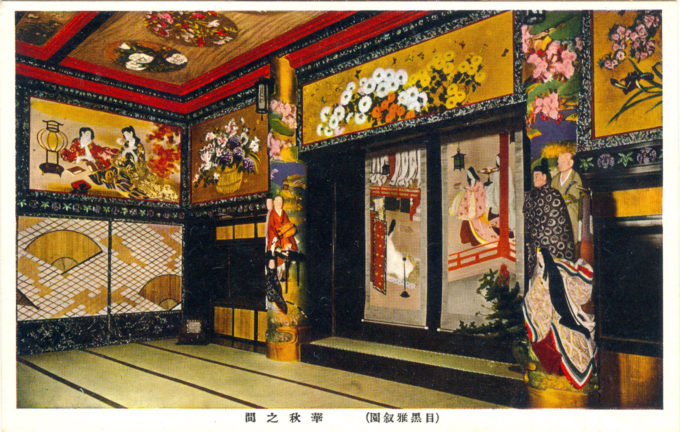
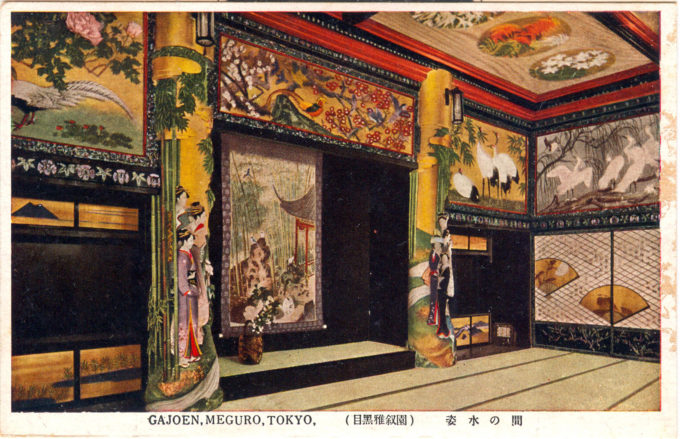
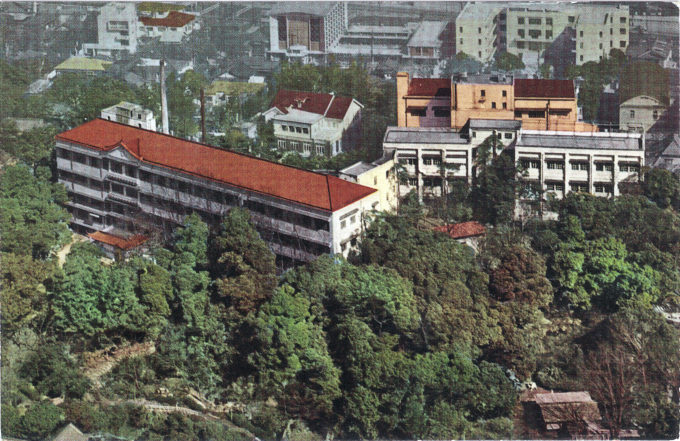
Pingback: tout au long de la rivière Meguro – made in tokyo